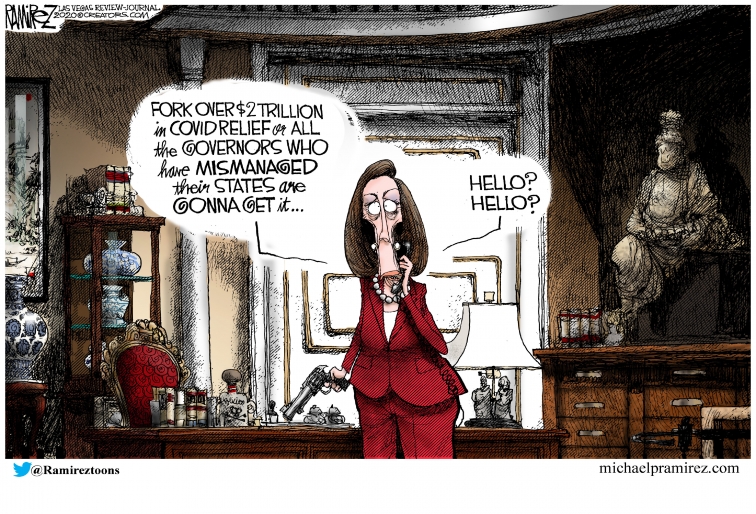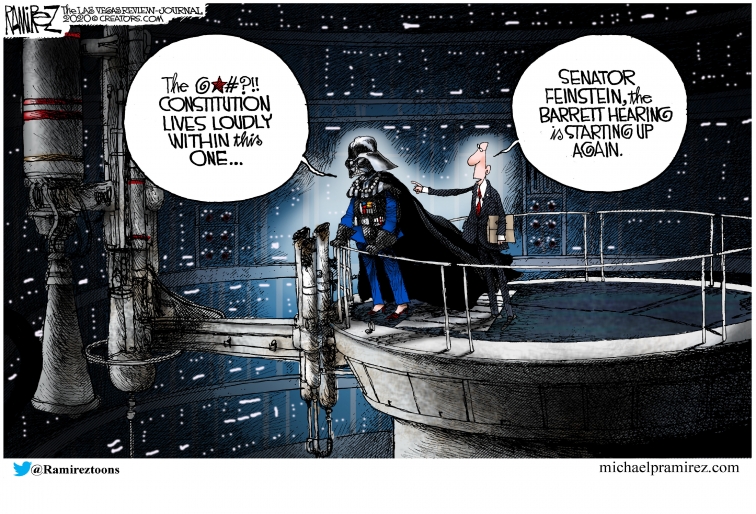October 30th, 2020 at 5:06 pm
CFIF Applauds SMARTER Antitrust Reform Bill
As we at CFIF regularly highlight, among the best ways to boost the American economy is via federal deregulation, which brought us the strongest economy in world history under President Trump.
For that reason CFIF enthusiastically applauds a bill sponsored by Senators Mike Lee (R – Utah), Thom Tillis (R– NOrth Carolina) and Charles Grassley (R – Iowa) entitled the Standard Merger and Acquisition Reviews Through Equal Rules (SMARTER) Act. Currently, differing antitrust review standards applied by the Department of Justice (DOJ) and the Federal Trade Commission (FTC) create confusion throughout our business and financial sectors, unnecessarily restraining U.S. economic prosperity. The SMARTER Act changes that by harmonizing that process:
‘The Federal Trade Commission and the Department of Justice unnecessarily apply different procedures and standards for reviewing proposed mergers,’ said Senator Tillis. ‘This commonsense legislation will streamline the enforcement of our federal antitrust laws by creating a system of consistency that will benefit consumers and businesses.’
The Department of Justice and the Federal Trade Commission share concurrent jurisdiction to review proposed mergers for compliance with the antitrust laws but it is not always clear in advance which agency will review a particular merger. Although the two antitrust agencies apply the same substantive law to the mergers they review, their procedures differ in important ways.
The SMARTER Act fixes this problem by requiring the Commission to satisfy the same standards that DOJ must meet in order to obtain a preliminary injunction to block a merger and requiring the Commission to litigate the merits of contested merger cases in federal court under the Clayton Act — just as DOJ does — rather than before its own administrative tribunals.
Separately, certain mergers also require approval of the Federal Communications Commission. However, the Federal Communications Commission’s merger review procedures create an open-ended process that fuels uncertainty and is potentially insulated from judicial review. This invites regulatory mischief from both sides of the aisle that only leads to an imbalance in the implementation of regulatory policy. The current process results in an inconsistent merger review process that not only harms the businesses seeking to complete a transaction in a timely manner, but it also hurts workers and consumers alike. The SMARTER Act fixes this problem by requiring the Commission to issue a decision within 180 days of receiving a completed merger application. The merger review process should not invite Congress or a regulatory agency to put a thumb on the scale of a particular transaction, but instead it should enable a fair and timely system that affords due process.”
As our economy continues to emerge from the coronavirus pandemic, legislation of this sort is precisely what we need to reover and surpass the old mark. CFIF applauds Senators Lee, Tillis and Grassley for their leadership.
October 29th, 2020 at 10:37 am
CFIF Letter to White House: Keep Targeting Rogue Venezuelan Regime, But Protect U.S. Enterprises Operating There
Less than twenty years ago, Venezuela was Latin America’s wealthiest nation. In the terrifyingly brief time since then, however, the rogue socialist regimes of Hugo Chavez and now his successor Nicolas Maduro have reduced it to a dystopian rubble more akin to starving Cuba. For that, the United States justifiably isolates and targets the Maduro regime for its ongoing corruption, theft and human rights abuses.
Amid that effort, however, we must also protect vulnerable American companies that have conducted business in Venezuela since long before the Chavez and Maduro regimes. By granting those American businesses specific waivers to continue operations, we protect them from suffering asset seizure at the hands of Maduro and his cronies. The alternative of denying that latitude would suddenly force U.S. enterprises to surrender their assets, thereby strengthening the Maduro regime by allowing it to commandeer those valuable assets for the benefit of Venezuelan state-owned enterprises or even handing them over to Chinese or Russian competitors.
In a new letter to the Trump Administration, we at CFIF highlight these realities and urge it to continue renewing U.S. business licenses to operate in order to protect their assets against Maduro expropriation:
American companies actually serve a positive capacity when allowed to continue operations in Venezuela. Numerous U.S. enterprises have operated in Venezuela for decades, preceding both the Maduro and Hugo Chavez regimes that have wreaked such havoc that once made Venezuela Latin America’s wealthiest nation. Not only do they visibly represent American values and the possibility of prosperity for the people of Venezuela, but they also provide well-paying jobs and labor protections that would evaporate if state-owned enterprises took over operations. Those American companies also support communities where the Maduro regime has failed to act, by providing healthcare and nutrition for needy Venezuelans, who continue to rely upon foreign support for humanitarian needs due to Maduro government failures.
It’s therefore critical that your administration send a clear signal to the Maduro regime that it cannot confiscate U.S. business assets, and that we will not allow it to enrich itself via American enterprises. The way to send that signal, and to protect U.S. businesses, is to grant those enterprises licenses to continue operations and protect their assets.”
The Trump Administration has shown leadership throughout its tenure in isolating the Maduro regime, and our letter urges it to protect American interests by renewing licenses for U.S companies to continue operations in Venezuela. That will allow those companies to protect their invaluable assets and investments, while signaling that the United States remains committed to the democratic and free market values that we represent.
October 28th, 2020 at 6:21 pm
Ramirez Cartoon: Pelosi Negotiates
Below is one of the latest cartoons from two-time Pulitzer Prize-winner Michael Ramirez…

October 13th, 2020 at 3:18 pm
Happy 40th to the Staggers Rail Act, Which Deregulated and Saved the U.S. Rail Industry
This week marks the 40th anniversary of the Staggers Rail Act of 1980, which deregulated American freight rail and saved it from looming oblivion.
At the time of passage, the U.S. economy muddled along amid ongoing malaise, and our rail industry teetered due to decades of overly bureaucratic sclerosis. Many other domestic U.S. industries had disappeared, and our railroads faced the same fate. But by passing the Staggers Rail Act, Congress restored a deregulatory approach that in the 1980s allowed other U.S. industries to thrive. No longer would government determine what services railroads could offer, their rates or their routes, instead restoring greater authority to the railroads themselves based upon cost-efficiency.
Today, U.S. rail flourishes even amid the coronavirus pandemic, accounting for 42% of total U.S. freight, while the U.S. Department of Transportation (DOT) anticipates another 30% growth in rail volume over the next two decades. In terms of cost-efficiency, today’s railroads transport nearly twice the freight for the same price of 40 years ago when the Staggers Act passed. Rail now transports fully one-third of all U.S. exports, its accident rate has fallen 10% in the past ten years alone and it moves one ton of goods over 470 miles on a single gallon of fuel – far surpassing the fuel efficiency of ground trucks. Rail also supports approximately 1.5 million jobs, industry employees earn 60% more than average U.S. workers and railroads have poured over $700 billion into domestic infrastructure improvements since 1980.
And importantly, in contrast to industries like trucking, shipping or airline freight, rail travels almost entirely upon infrastructure that it built and maintains with its own dollars. Rail also hasn’t needed federal bailouts, as opposed to other industries.
Americans should all recognize rail’s success story, and thank the Staggers Rail Act and the deregulation that it restored for that success. Happy 40th!
October 13th, 2020 at 11:16 am
Sen. Feinstein: ‘The Constitution Lives Loudly Within This One’
Below is one of the latest cartoons from two-time Pulitzer Prize-winner Michael Ramirez…

View more of Michael Ramirez’s cartoons on CFIF’s website here.
October 2nd, 2020 at 11:40 am
A Note from CFIF on President Trump’s Positive Coronavirus Test
Amid an excessively acrimonious partisan landscape, we simply wish to extend the CFIF family’s best wishes of luck and health to President Trump following his positive test for coronavirus, as we wish to anyone and everyone who has tested positive, as well as those loved ones affected by it. In similar spirit, we express gratitude that Joe Biden and his wife have reportedly tested negative.



 CFIF Freedom Line Blog RSS Feed
CFIF Freedom Line Blog RSS Feed CFIF on Twitter
CFIF on Twitter CFIF on YouTube
CFIF on YouTube